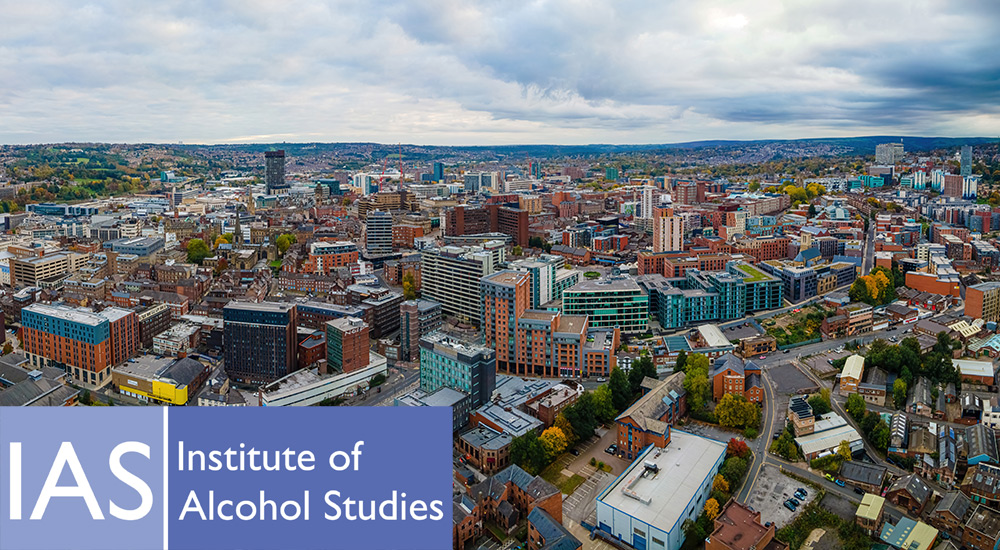IAS funds SARG researcher to study barriers to no/lo drink consumption among disadvantaged groups

Dr Merve Mollaahmetoglu has been awarded a grant from the Institute of Alcohol Studies (IAS) to investigate barriers to the use of alcohol-free and low-alcohol drinks among individuals from lower socioeconomic backgrounds.
The project, entitled 'Understanding barriers to the use of alcohol-free and low-alcohol drinks to reduce alcohol consumption among individuals from lower socioeconomic backgrounds' aims to shed light on why no/no drinks may not be as accessible or appealing to those from disadvantaged communities.
Through qualitative interviews with individuals from lower socioeconomic groups, including those from ethnic minority backgrounds, the research team will explore their perceptions of no/no drinks, the challenges they face in incorporating them into attempts to reduce their alcohol consumption, and potential solutions to these barriers. Additionally, the research will examine the availability of no/no drinks in shops and other outlets in both deprived and affluent areas of Sheffield.
The IAS Small Grants Scheme supports early career researchers and prioritises projects that can inform public policy debates on alcohol harm. This particular round focused on addressing alcohol-related inequalities, and Merve's research aligns closely with this goal.
By understanding the factors that hinder the adoption of no/no drinks among individuals from lower socioeconomic backgrounds, this project could help inform strategies to promote their use as substitutes for alcoholic drinks and reduce alcohol-related harm in these communities. Additionally, the project could inform whether additional policy options beyond no/lo drinks need to be prioritised to reduce alcohol harm in these groups.
Merve's study runs in parallel to the NIHR-funded project 'Evaluating and responding to the public health impact of no and low alcohol drinks: A multi-method study of a complex intervention in a complex system' (also known as the No/Lo Project). Over the course of four years the project is examining whether making non-alcoholic or low-alcohol drinks more available and popular in the UK can improve people's health.
-
Professor John Holmes contributes to major new report outlining actions to tackle alcohol harm
SARG Director Professor John Holmes was part of an expert panel that supported the development of 'A Healthier Future: A long-term vision to tackle alcohol harm in the UK', a significant new report published by the Institute of Alcohol Studies (IAS) this week.
-
SARG researchers present on economic modelling and wastewater surveillance at European Public Health Conference
Two researchers from the Sheffield Addictions Research Group (SARG), Dr Charlotte Head and Dr Esther Chanakira, will showcase innovative local-level tools for policy design, including economic modelling and wastewater surveillance, at the European Public Health (EPH) Conference in Helsinki from 11–14 November 2025.
-
SARG to present latest research on alcohol-free and low-alcohol drinks at SSA Annual Conference 2025
Researchers from the Sheffield Addictions Research Group (SARG) are set to present their latest findings on alcohol-free and low-alcohol drinks at the Society for the Study of Addiction (SSA) Annual Conference 2025.
-
New SARG report details alcohol-related health and financial burden in Northern Ireland
The Sheffield Addictions Research Group (SARG) has published new analysis estimating the substantial health and financial toll of alcohol consumption in Northern Ireland, using the most recent available post-pandemic data.
You might also be interested in…
-
SARG to present latest research on alcohol-free and low-alcohol drinks at SSA Annual Conference 2025
Researchers from the Sheffield Addictions Research Group (SARG) are set to present their latest findings on alcohol-free and low-alcohol drinks at the Society for the Study of Addiction (SSA) Annual Conference 2025.
-
New report reveals further growth and key trends in alcohol-free and low-alcohol drinks market
A second Monitoring Report from the Sheffield Addictions Research Group has been published, revealing further growth in the alcohol-free and low-alcohol (no/lo) drinks market and offering new insights into consumer behaviour and pricing.
-
SARG's Lucy Burke wins Open Research Prize 2025
Lucy Burke, a Qualitative Research Associate and PhD Student with the Sheffield Addictions Research Group (SARG), has been awarded the University of Sheffield Open Research Prize 2025 in the Postgraduate Researcher (PGR) category.
